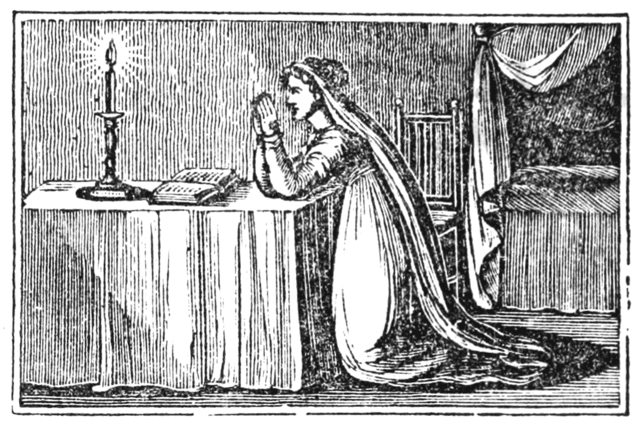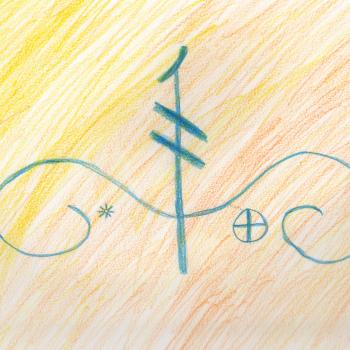So one bright spot on this day after Election Day: after her brush with death, my mom is out of the hospital. She’s not yet home, in a rehab center; but still, after six and half weeks of hospitalization, that’s exciting news for us.
Those weeks ago, when we realized the seriousness my her medical condition and starting contacting family and friends, most said something along the lines of “We’ll be praying for her.” Between her circles and mine, Lutherans and Episcopalians and Catholics and Unitarians were praying to Jesus, Buddhists were chanting, Pagans were working magick and distance “energy work”…I think we might have had some Muslims and Hindus in there too.
Now I am a humanist Pagan sort, who does not believe in miracles or “divine intervention” as we usually understand that term. Still, I thanked them; as I said many times over the past few weeks, we’ll take all the help we can get. But is that just a politeness? Does prayer matter?
The first scientific inquiry into that question seems to have been made by Francis Galton in 1872.[Galton] He realized that people where always praying for the Queen or King, so if prayer worked, sovereigns ought to live longer:
The public prayer for the sovereign of every state, Protestant and Catholic, is and has been in the spirit of our own, ‘Grant her in health long to live.’ Now, as a simple matter of fact, has this prayer any efficacy? There is a memoir by Dr. Guy, in the Journal of the Statistical Society (vol. xxii, p. 355), in which he compares the mean age of sovereigns with that of other classes of persons….
The sovereigns are literally the shortest lived of all who have the advantage of affluence. The prayer has therefore no efficacy, unless the very questionable hypothesis be raised, that the conditions of royal life may naturally be yet more fatal, and that their influence is partly, though incompletely, neutralized by the effects of public prayers.
But this is a very remote and impersonal sort of prayer. What of closer interactions?
There have been occasional clinical trials of intercessory prayer (IP). A 2006 meta-analysis of such trials found that “There is no scientifically discernable effect for IP as assessed in controlled studies.”[Masters]

But the problem with this is that we do not live our lives under controlled experimental conditions. The double-blind randomized controlled trial, the gold standard of controlled studies, is excellent for assessing the biological effects of a chemical on an isolated organism; but more complicated interactions are hard to study.
Still, I see no reason to accept what we might call the “Naive Theory of Prayer”: that there exist (in a naive realism sense of “exist”) beings or energies or phenomena consisting of a special substance not bound by ordinary physical laws, which can be petitioned by humans to intervene on our behalf. We have no significant objective evidence of the existence of such beings, or of such intervention.
More sophisticated is what we might call the “Psychokinetic Theory of Prayer”: that our minds are capable of directly affecting material reality, through some sort of psychokinesis or a von Neumann–Wigner (“consciousness causes collapse”) interpretation of quantum theory, and that prayer is an effective way of focusing the mind to enable this to happen. This at least does not require us to posit the existence of additional beings, but again we don’t have evidence for such mental powers.
I do not think there is anything involved in prayer which does not supervene on the material world as we (fuzzily and incompletely) understand it.
But, that material world is a lot more subtle than we often give it credit for. It allows for a third alternative we might call the “Sociodynamic Theory of Prayer”.
The reason that healing becomes hard to study outside of controlled experiments is because biological organisms are highly nonlinear phenomenon — “chaotic”, in a word. Small changes have great effects. Consider what the introduction of just a few viruses, or a small amount of an allergen, can do to an organism.
My mother’s recovery was influenced by the behavior of the people around her. There were my father, my brother, and I, visiting her often, talking to her even when she was unconscious, holding her hand; in my case even doing massage, acupressure, and reiki. There were deacons from her church. There were dozens of doctors, nurses, and technicians who were part of her treatment, and staff who supported them. Even the custodians who mopped the floor and took away the trash played a vital role.
And their behavior was influenced by their interactions with us. Every word that I spoke to a nurse affected their thoughts about me and about my mom. Several nurses commented that it was unusual for an ICU patient to be so frequently visited; it seems to me that this might prompt an unusual level of attention to that patient’s needs.
But to be able to be there so often for Mom, we needed support from those around us. Some of that was logistical; my aunt cooked for us, one of my fellow black belts covered a karate class for me, my brother’s boss gave him time off and a pay advance. But a large part was psychological. We are social animals and we need to know that we are cared for.
Every time that someone said “We’re praying for her”, the subtext of that was “I care. I am emotionally invested in the outcome of this, at the deepest level of my spirit where I confront the mystery of Self and Universe. I stand with you.” And that’s a message that buoys us up, whether we share the same beliefs about the Self and Universe or not.
References
Galton, Francis. “Statistical Inquiries into the Efficacy of Prayer.”
Fortnightly Review Vol. 12, 1872. http://www.galton.org/essays/1870-1879/galton-1872-fort-rev-prayer.pdf
Masters KS, Spielmans GI, Goodson JT. “Are there demonstrable effects of distant intercessory prayer? A meta-analytic review.” Ann Behav Med. 2006 Aug;32(1):21-6. https://www.ncbi.nlm.nih.gov/pubmed/16827626













